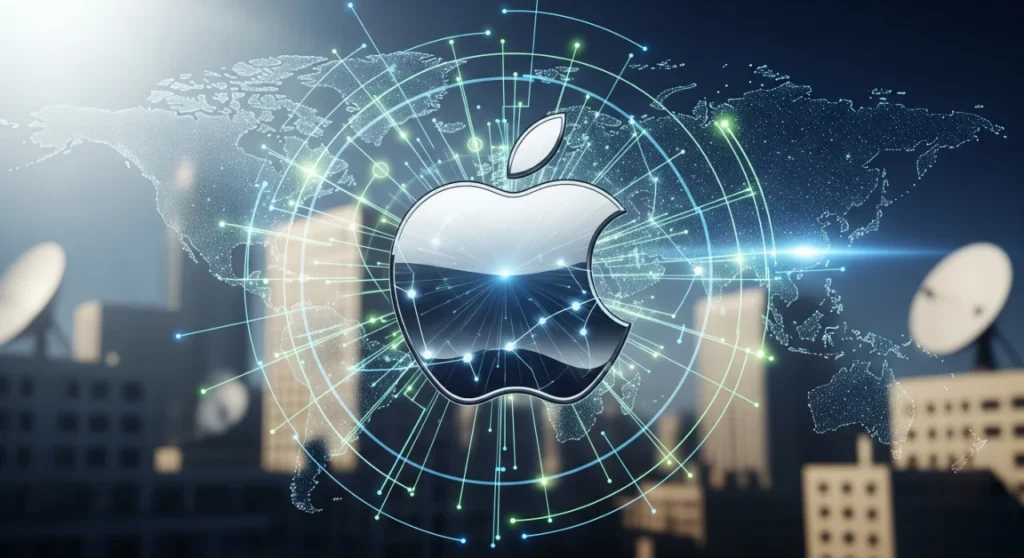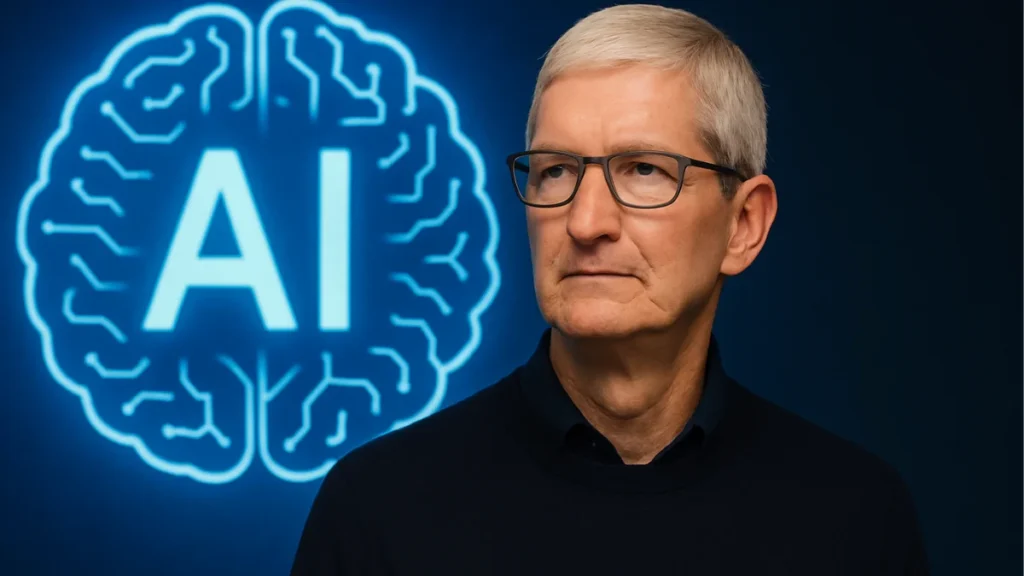Apple is no longer sitting quietly in the AI race.
In a surprising but telling move, CEO Tim Cook has confirmed that Apple is “open” to acquiring AI companies as it aggressively ramps up its artificial intelligence ambitions. His comments followed the company’s Q3 earnings report, revealing a staggering $94 billion in revenue—a 10% year-over-year surge.
This article explores what Cook’s statement really means, why Apple is reassigning engineers to AI, and how acquisitions could be Apple’s secret weapon to catch up with OpenAI, Google, and Meta.
Key Takeaways
- Apple is open to acquiring AI startups like Perplexity to boost its capabilities.
- Tim Cook says AI is now being embedded across all Apple devices and services.
- Internal reshuffle puts more people on AI—including revamping Siri with LLM tech.
- Apple’s revenue remains strong, but AI delays and trade tensions pose risks.
Apple’s AI game is finally heating up—but it’s a game of catch-up.

Long viewed as trailing behind rivals in generative AI, Apple is making bold moves to course-correct. Cook’s openness to mergers and acquisitions is a dramatic shift for a company famously selective with its M&A strategy. Just last month, reports surfaced that Apple had explored acquiring Perplexity, a fast-growing AI search startup. Talks are also underway with OpenAI and Anthropic to power a smarter, large language model-driven Siri.
But that’s not all. Apple has internally reassigned talent to accelerate AI development. Vision Pro lead Mike Rockwell now heads the AI and Siri division. And although the much-hyped Siri upgrade was delayed, Cook reassures investors that it’s coming—just not before it’s ready.
“We’re making good progress on a more personalized Siri,” Cook noted. “We’re reallocating a fair number of people to focus on AI features.”
Despite these changes, Apple’s business fundamentals remain strong. iPhone sales jumped 13% year-over-year to $44.6 billion. Mac revenue hit $8.1 billion, boosted by the March release of a new MacBook Air. Services revenue, including Apple Music and iCloud, reached an all-time high of $27.4 billion.
Still, challenges loom. Cook hinted at cost pressures from Trump-era tariffs, potentially adding $900 million in expenses. The former president has even threatened to slap a 25% tariff unless Apple brings more manufacturing to the U.S.—a demand the company may try to dodge by shifting production to India.
As the AI arms race continues, Apple’s next moves—whether it’s acquiring startups, launching LLM Siri, or debuting iPhone 17 with AI baked in—could define its next decade.
